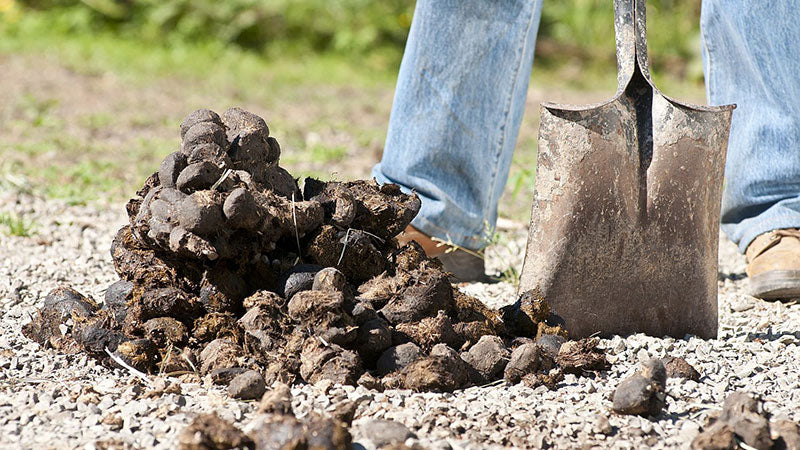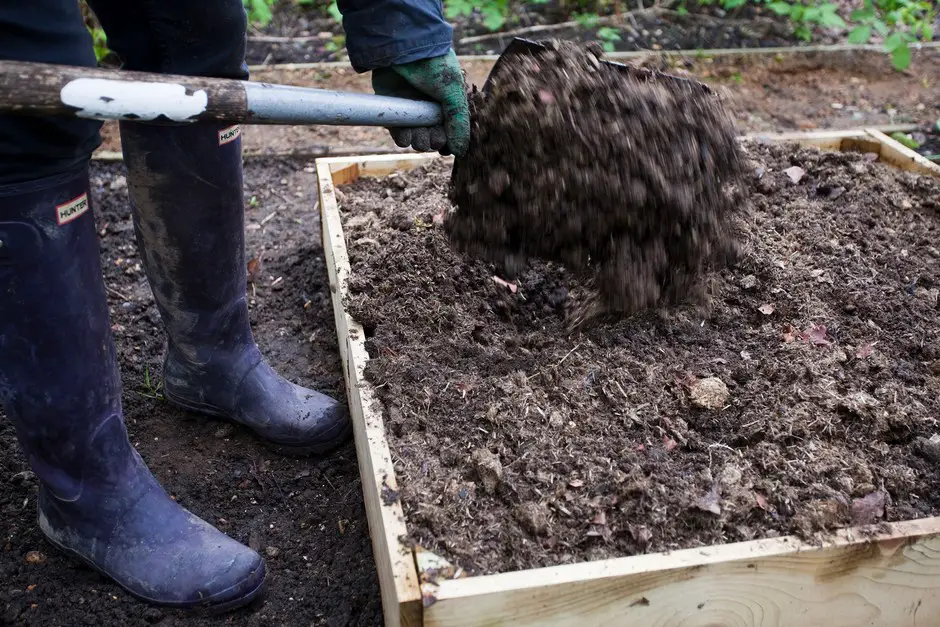Are you looking for a natural way to boost your garden’s health? Imagine transforming your plants into lush, vibrant beauties with just one simple addition.
Horse manure might be the secret ingredient you’ve been searching for. But is it really good for your garden? You might have heard whispers about its benefits, but you’re not quite sure if it’s worth trying. Get ready to uncover the truth behind this age-old gardening practice.
As you delve deeper, you’ll discover how horse manure can potentially revolutionize your gardening efforts. By the end of this article, you’ll have all the insights you need to make an informed decision. Ready to give your garden the nourishment it deserves? Let’s explore the wonders of horse manure together.

Credit: humboldtssecretsupplies.com
JUMP TO TOPIC
Benefits Of Horse Manure
Horse manure is a valuable asset for gardens. It provides numerous benefits that enhance soil health and plant growth. This natural fertilizer is rich in nutrients and helps improve the soil structure.
Nutrient-rich Fertilizer
Horse manure is packed with essential nutrients. It contains nitrogen, phosphorus, and potassium. These nutrients are vital for plant growth. They support strong root development and vibrant foliage. Using horse manure enriches the soil naturally. It provides a steady supply of nutrients over time. Plants absorb these nutrients easily. This leads to healthier and more productive gardens.
Improving Soil Structure
Horse manure enhances soil structure significantly. It adds organic matter to the soil. This improves soil aeration and drainage. Better soil structure helps retain moisture. It also prevents soil compaction. This creates an ideal environment for plant roots. Healthy roots mean healthy plants. Horse manure contributes to a fertile and sustainable garden ecosystem.
How Horse Manure Affects Plant Growth
Horse manure enriches soil with nutrients, enhancing plant growth. It improves soil texture and promotes healthy root systems. Rich in organic matter, it supports beneficial microorganisms, aiding nutrient absorption for plants.
Horse manure is a powerful ally for gardeners striving to enhance plant growth. But how exactly does it influence your garden’s health? Understanding its impact can help you cultivate a thriving and vibrant landscape.Boosting Plant Health
Horse manure is rich in nutrients, acting as a natural fertilizer. It provides essential elements like nitrogen, phosphorus, and potassium. These nutrients are crucial for plant vitality. Have you noticed your plants looking healthier? Adding horse manure might be the reason. It improves soil structure, enhancing water retention and aeration. The organic matter in horse manure also supports beneficial microorganisms. These tiny allies help break down nutrients, making them more accessible to plants.Enhancing Root Development
Strong roots are the foundation of healthy plants. Horse manure plays a vital role in fostering robust root systems. It encourages better root penetration by loosening compacted soil. Struggling with root growth? Incorporating horse manure can be a game-changer. It enriches the soil, providing a conducive environment for roots to expand. Horse manure’s nutrient content stimulates root growth. Healthy roots mean your plants can access water and nutrients more efficiently. How do you ensure your garden flourishes? Consider adding horse manure to your soil mix. Your plants will thank you with vigorous growth and abundant blooms. Have you tried using horse manure in your garden? What changes did you observe? Share your experiences and tips to inspire fellow gardeners.Using Horse Manure In Gardens
Horse manure can be a beneficial addition to gardens. It enriches soil and boosts plant growth. This natural fertilizer provides essential nutrients. It’s an eco-friendly choice for gardeners seeking sustainable options. Learn how to use horse manure effectively.
Composting Techniques
Composting horse manure is a smart approach. It reduces odor and weed seeds. Start by mixing manure with straw or wood shavings. Turn the pile regularly. This aerates the compost and speeds decomposition. After a few months, the compost is ready. Use it to improve soil quality.
Direct Application Methods
Fresh horse manure can be applied directly to gardens. Spread a thin layer over the soil. Be cautious with quantities. Too much can harm plants. It’s best for non-edible plants. Let it decompose naturally over time. This method enhances soil structure and fertility.
Environmental Impact
Horse manure can have a positive environmental impact on gardens. It enriches the soil naturally. This reduces the need for synthetic fertilizers. It also helps in recycling waste, keeping it out of landfills. By using horse manure, gardens can thrive sustainably. Let’s explore how this practice benefits the environment.
Sustainable Practices
Horse manure supports sustainable gardening practices. It is an organic material that decomposes naturally. This enriches the soil over time. Using it reduces reliance on chemical fertilizers. It also promotes healthy plant growth. This natural cycle enhances soil fertility year after year.
Reducing Chemical Fertilizer Dependence
Horse manure reduces the need for chemical fertilizers. It provides essential nutrients to plants. This natural source of nutrition lessens environmental pollution. Chemical fertilizers can harm water bodies. They can also affect soil health negatively. Using horse manure offers a greener alternative. Gardens benefit from this eco-friendly approach.
Safety And Precautions
Horse manure enriches soil with nutrients, but safety is crucial. Proper precautions prevent risks and ensure a healthy garden environment. Understanding potential hazards keeps your garden safe and thriving.
Preventing Pathogens
Pathogens in manure can harm plants. Composting manure kills harmful bacteria. Proper composting raises temperature, eliminating risks. Ensure manure decomposes thoroughly before garden use. This process reduces pathogen presence significantly.
Regularly turning compost speeds decomposition. Turning also maintains even temperature. A thermometer helps monitor compost heat. Aim for temperatures above 140°F. This temperature ensures pathogen destruction. Keep compost moist but not soggy.
Proper Handling And Storage
Store horse manure safely to avoid contamination. Use a covered area for storage. This prevents runoff and leaching. Keep manure away from water sources. This avoids spreading pathogens through water.
Wear gloves when handling manure. Gloves protect against direct contact. Wash hands thoroughly after working with manure. Avoid inhaling dust from dried manure. Use a mask if necessary. Store manure in a cool, dry place to prevent spoilage.
Proper storage ensures manure remains beneficial. It keeps nutrients intact for garden use. Inspect manure regularly for signs of pests or mold. Address issues promptly to maintain quality.

Credit: www.gardenersworld.com
Comparing Horse Manure To Other Fertilizers
Horse manure enriches soil with nutrients, boosting plant growth. Unlike synthetic fertilizers, it improves soil structure naturally. Organic matter in horse manure enhances water retention, making it a favored choice for gardens.
When you are pondering the best fertilizer for your garden, horse manure often stands out as a compelling option. But how does it stack up against other fertilizers? Let’s delve into the benefits and advantages of using horse manure over other types.Benefits Over Chemical Fertilizers
Horse manure offers a natural alternative to chemical fertilizers. Unlike chemicals, it enriches the soil without the risk of harmful residues that could affect your plants and health. You might be surprised to know that horse manure not only feeds your plants but also improves soil structure over time. Consider the environmental impact. Chemical fertilizers can leach into water systems, causing harm to aquatic life. Horse manure, being organic, breaks down naturally, posing no such threats. Additionally, horse manure can be cost-effective. Many equestrian centers and farms are willing to give it away for free, while chemical fertilizers can be expensive. Why spend more when nature provides a sustainable solution?Advantages Compared To Other Animal Manures
Compared to cow or pig manure, horse manure is often easier to handle. It is less dense and usually comes mixed with bedding, like straw or sawdust, which adds extra organic material to your soil. Have you ever noticed the smell of chicken manure? It’s quite pungent. Horse manure, on the other hand, has a milder aroma, making your gardening experience more pleasant. Another notable advantage is the nutrient content. Horse manure is rich in nitrogen, phosphorus, and potassium, essential for plant growth. Unlike chicken manure, which can be too strong and burn plants if not properly composted, horse manure is relatively gentle. Think about the availability too. Horse manure is often more accessible if you live near rural areas or horse stables. This accessibility means you can maintain your garden’s fertility without frequent trips to the garden center. Horse manure stands out not just for its nutritional benefits but also for its practicality and sustainability. Are you ready to make the switch for a thriving garden?
Credit: outpostbuildings.co.nz
Frequently Asked Questions
When Should You Not Use Horse Manure?
Avoid using horse manure when it’s fresh and not composted. Fresh manure can burn plants and introduce pathogens. Don’t use it on edible plants close to harvest. Ensure proper composting to eliminate weed seeds and harmful bacteria. Use aged manure for safe and effective fertilization.
Can I Put Horse Manure Straight On The Garden?
Fresh horse manure can harm plants due to high ammonia and bacteria. Compost it first for safe garden use. Properly aged manure enriches soil, boosts nutrients, and improves plant growth. Ensure thorough decomposition to reduce odors and pathogens. Always wear gloves when handling manure to maintain hygiene.
Which Plants Do Not Like Manure?
Certain plants like carrots, radishes, and beets dislike manure. Manure can cause root vegetables to fork or split. It also leads to excessive leaf growth in root crops, reducing their yield. Avoid using manure for herbs like lavender and rosemary, as they prefer nutrient-poor soil.
Can You Put Too Much Horse Manure In Your Garden?
Yes, excessive horse manure harms gardens by raising nitrogen levels, burning plants, and disrupting soil balance. Use composted manure sparingly to enhance soil health. Mix it well into the garden to avoid nutrient overload and potential plant damage. Regularly monitor plant growth for signs of manure-related issues.
Conclusion
Horse manure benefits gardens in many ways. It enriches the soil. Plants grow stronger and healthier. This natural fertilizer boosts plant nutrition. It’s also budget-friendly and widely available. Composting manure reduces odors and kills weeds. Always mix it well into the soil.
Use aged manure to avoid plant burns. Your garden will thrive with horse manure. Try it, and watch your garden bloom!

